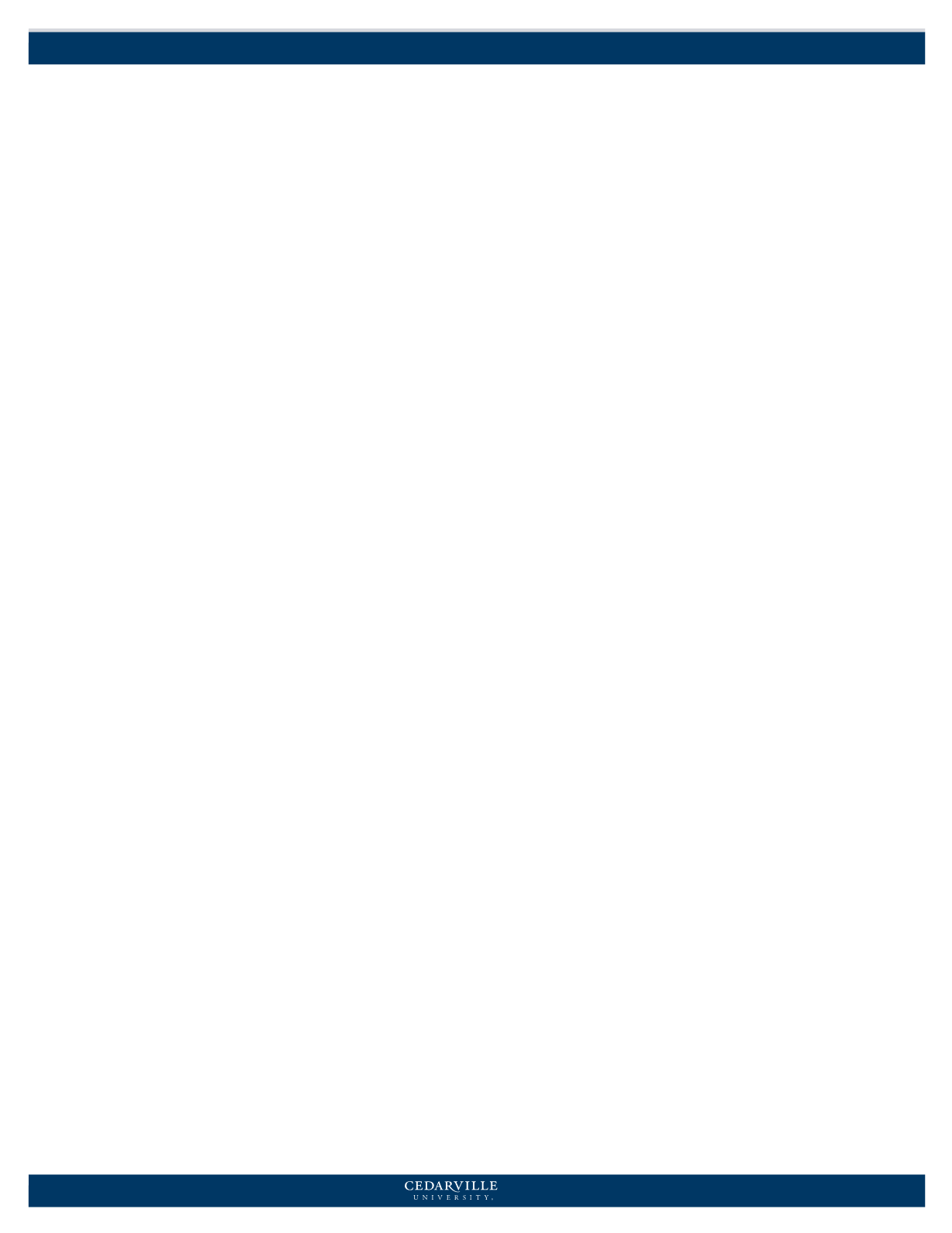

Page 60
2016–17 Graduate Academic Catalog
Graduate-Level Course Descriptions
PHAR-6132 – PHAR-6240
PHAR-6132
5 hours
Integrated Medicinal Chemistry and Pharmacology
This course will lay the foundation for understanding the
medicinal chemistry and pharmacological principles that govern
the pharmacodynamics and pharmacotherapeutics of the various
classes of drugs.
Prerequisites: good standing in the P1 year in
the School of Pharmacy; PHAR-6130 Medicinal Biochemistry;
PHAR-6131 Pharmaceutical Sciences.
PHAR-6134
4 hours
Pharmacokinetics and Biopharmaceutics
This course will lay the foundation for understanding the kinetic
phenomena that helps to quantify and integrate the journey
of drugs in the body. In addition, this course also shows the
practical applications of pharmacokinetics and biopharmaceutics
in providing a rational approach to patient care by establishing,
optimizing and individualizing dosage regimen of different drugs
in a clinical setting.
Prerequisites: Good standing in P1 year in the
School of Pharmacy; PHAR-6130 Medicinal Biochemistry; PHAR-
6131 Pharmaceutical Sciences.
PHAR-6135
2 hours
Medical Informatics and Evidence-based Medicine
This course will focus on informatics and introductory concepts
in biomedical literature. The course is designed to introduce
students to the area of informatics within the health care system.
Additional emphasis will be placed on biomedical literature
concepts. The aim is to help students build basic foundational
literature-searching and appraisal skills. A variety of pedagogical
methods and activities will be utilized within the course to enhance
students learning. The course willl consist of didactic sessions,
workshops, live case consults, presentations, and summative
assessments.
Prerequisites: P1 standing.
PHAR-6136 Introduction to Bioethics
1 hour
This course will explore the philosophical and theological
foundations for professional, biomedical, and clinical ethics. Using
lecture and case studies, this course will discuss and analyze the
range of ethical theories from different worldviews and contrast
them with a biblical worldview. This course will explore the
theological, philosophical, and scientific foundations for human
personhood and human dignity, providing a framework for further
study in the various arenas of applied bioethics.
Prerequisites: P1
standing.
PHAR-6137 Immunology, Immunotherapy, and
Pharmacogenomics
4 hours
The purpose of the Immunology, Immunotherapy, and
Pharmacogenomics course is to provide a basic knowledge
of the immune response and its involvement in health and
disease, and how the monoclonal antibody-based therapies
target these responses. In addition, the course introduces the
basics of genetics followed by disease-specific applications
of pharmacogenomics to provide an insight into the future of
clinical pharmacy practice. Using case studies, class discussion
and individual student presentations, students will apply genetic
and pharmacogenomic principles to the practice of pharmacy.
Prerequisite: admission into the Pharm.D. program; P1 standing.
PHAR-6171
1 hour
Community Introductory Pharmacy Practice Experience I
Community Introductory Pharmacy Practice Experiences
(IPPE-I) in the first year of the professional curriculum is designed
to provide opportunities for students to practice technical
pharmacy skills in community settings. Students in Community
IPPE-I will meet with an assigned preceptor for five-hour periods
through the semester, totaling 50 contact hours. Students will
demonstrate core practice skills: communication, calculations,
ethics, medication safety, managing resources, wellness,
health promotion, technology, informatics, and critical thinking.
Prerequisite: entrance into the professional curriculum.
PHAR-6172
1 hour
Community Introductory Pharmacy Practice Experience II
Community Introductory Pharmacy Practice Experiences
(IPPE-II) in the first year of the professional curriculum is
designed to provide opportunities for students to practice technical
pharmacy skills in community settings. Students in Community
IPPE-II will meet with an assigned preceptor for five hour periods
throughout the semester, totaling 50 contact hours. Students will
demonstrate core practice skills: communication, calculations,
ethics, medication safety, managing resources, wellness,
health promotion, technology, informatics, and critical thinking.
Prerequisite: entrance into the professional curriculum.
PHAR-6210
2 hours
Cross-Cultural Care and Communication
This course utilizes a cross-cultural framework to communicate
principles of healthy living and provide patient care to different
people groups. The course emphasizes the application of biblical
basis for missions in providing patient care across different
cultures with a genuine respect for the specific culture involved.
In addition, this course introduces the design, implementation,
and evaluation of health communication programs.
Prerequisites:
good standing in P1 year in the School of Pharmacy; PHAR-6130
Medicinal Biochemistry; PHAR-6131 Pharmaceutical Sciences;
PHAR-6132 Integrated Medicinal Chemistry and Pharmacology;
PHAR-6134 Pharmacokinetics and Biopharmaceutics.
PHAR-6211 Medication Therapy Management
2 hours
This course will provide the student with an in-depth, working
knowledge of Medicare Part D, with an emphasis on Medication
Therapy Management (MTM) Services. Through self-study
modules, case studies, and hands-on patient interview and
assessment practice sessions, students will strengthen existing
skills needed to develop and implement MTM services in
community pharmacies.
Prerequisites: good standing in P2 or P3
year in the School of Pharmacy.
(odd years)
PHAR-6231 Exotoxicology
2 hours
This course explores the current understanding related
to different interactions of substances and chemicals in
environmental systems and subsystems on their bioavailability,
circulation, and assimilation in target organisms as well as their
physiological and pathophysiological responses. In addition, this
course will examine the mechanisms and processes by which
chemicals exert their effects on ecosystems and their ultimate
impact on the populations or communities.
Prerequisites: good
standing in P1 year in the School of Pharmacy; PHAR-6130
Medicinal Biochemistry; PHAR-6131 Pharmaceutical Sciences;
PHAR-6132 Integrated Medicinal Chemistry and Pharmacology;
PHAR-6134 Pharmacokinetics and Biopharmaceutics.
PHAR-6240 Applied Biomedical Sciences Module 3 hours
This course will cover the pathophysiology, management,
and drug therapy of conditions related to electrolyte and fluid
imbalance, enteral and parenteral nutrition as well as anemias.
The knowledge gained will enable the student to manage
electrolyte and fluid disorders and anemias, establish and employ
rational treatment, and provide parameters to monitor progress of
the regimens. This course also will cover tools to effectively assess
therapy including interpretation of laboratory values.
Prerequisites:
P2 standing.


















